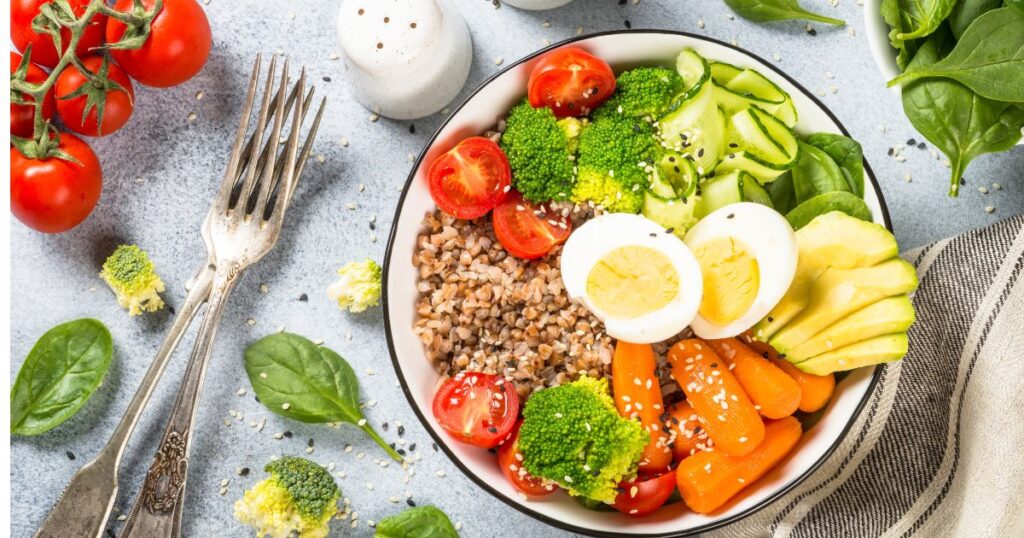
👩⚕️By Dr. Najma Shaikh | Certified Nutritionist | NS Nutricare
Rainy season cravings are real—and completely normal!
The moment the rain hits, our minds drift toward crispy pakoras, masala chai, vada pav, and everything deep-fried. The cozy weather makes indulgence feel almost necessary. But over the weeks, these repeated treats can start taking a toll—on digestion, immunity, and energy levels.
If you’ve been enjoying monsoon snacks a little too often lately (like most of us), this is your gentle reminder: it’s time to reset your diet—not with guilt, but with balance and care.
Why the Rainy Season Affects Your Health
Monsoon brings beauty and calm, but also:
- Increased humidity, which slows digestion
- Higher risk of infections and waterborne diseases
- More oily/spicy food intake, which causes bloating or fatigue
That’s why mid-monsoon is the right time to support your gut, immunity, and hydration with smart food choices.
Your Rainy Season Diet Reset Plan
1. Start Your Day Warm and Clean
Skip cold drinks or smoothies in the morning. Instead, go for:
- Warm water + lemon + turmeric
- Or soaked fenugreek (methi) seeds or chia seeds
This helps detox your system and improves digestion after heavy meals.
2. Eat Cooked, Easy-to-Digest Foods
Raw salads and cold foods are hard to digest in this season. Choose:
- Moong dal khichdi, daliya, or vegetable upma
- Steamed or sautéed vegetables like lauki, tori, bhindi
- Homemade soups for warmth and nourishment
Avoid reheated or leftover food—freshly cooked meals are safer and better for gut health in monsoon.
3. Stay Hydrated—The Right Way
In monsoon, we don’t feel thirsty, but our body still loses fluids.
Try:
- Herbal teas (ginger, tulsi, mint)
- Ajwain or jeera water
- Homemade buttermilk with a pinch of rock salt
These not only hydrate but also reduce bloating and acidity caused by fried food.
4. Choose Seasonal Fruits Wisely
Eat what’s in season to stay aligned with nature and build immunity. Try:
- Guava – for Vitamin C
- Papaya – to boost digestion
- Jamun, pomegranate, pear – high in fiber and antioxidants
Avoid pre-cut fruits sold outside, especially during rains.
5. Tame Salt and Sugar Cravings
Too much fried and salty food leads to water retention. Reduce gradually:
- Replace fried snacks with roasted makhana or chana
- Swap sugar with dates or jaggery (in moderation)
- Choose steamed snacks like idli, dhokla, or besan chilla
6. Restore Gut Health With Probiotics
After days of heavy, spicy food, your gut needs care. Include:
- Homemade curd or buttermilk
- Light fermented drinks like kanji
- A simple raita with meals to soothe digestion
7. Fix Your Meal Timing
Rainy days often mess up routines. Reset your clock with:
- Early, warm breakfast
- Small, regular meals every 3–4 hours
- Dinner before 8 PM
- Herbal tea post-dinner (no snacks!)
Rainy Season Sample Meal Plan (Dr. Najma’s Recommendation)
| Time | Meal |
|---|---|
| 7:00 AM | Warm water with lemon + soaked chia/methi seeds |
| 8:30 AM | Vegetable poha or moong dal chilla |
| 11:00 AM | 1 seasonal fruit (papaya or guava) |
| 1:00 PM | Brown rice + dal + steamed sabzi + cucumber raita |
| 4:00 PM | Ginger tea + roasted makhana |
| 7:30 PM | Clear soup + 1 millet roti + sautéed spinach or tofu |
💬 Dr. Najma’s Advice for Monsoon Health
“As a nutritionist and a mother, I understand how tempting monsoon snacks can be. You don’t have to stop enjoying food—but balance it with what your body truly needs during this season: warmth, digestion, and hydration. Small changes lead to big results when done consistently.” 🌧️🥦
Need a Custom Diet Plan for This Season?
Every person’s needs are different—especially during weather transitions like monsoon. Let me help you create a realistic, easy-to-follow plan that fits your cravings, schedule, and health goals.
Book your consultation today
